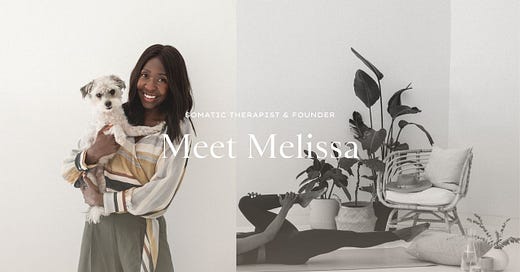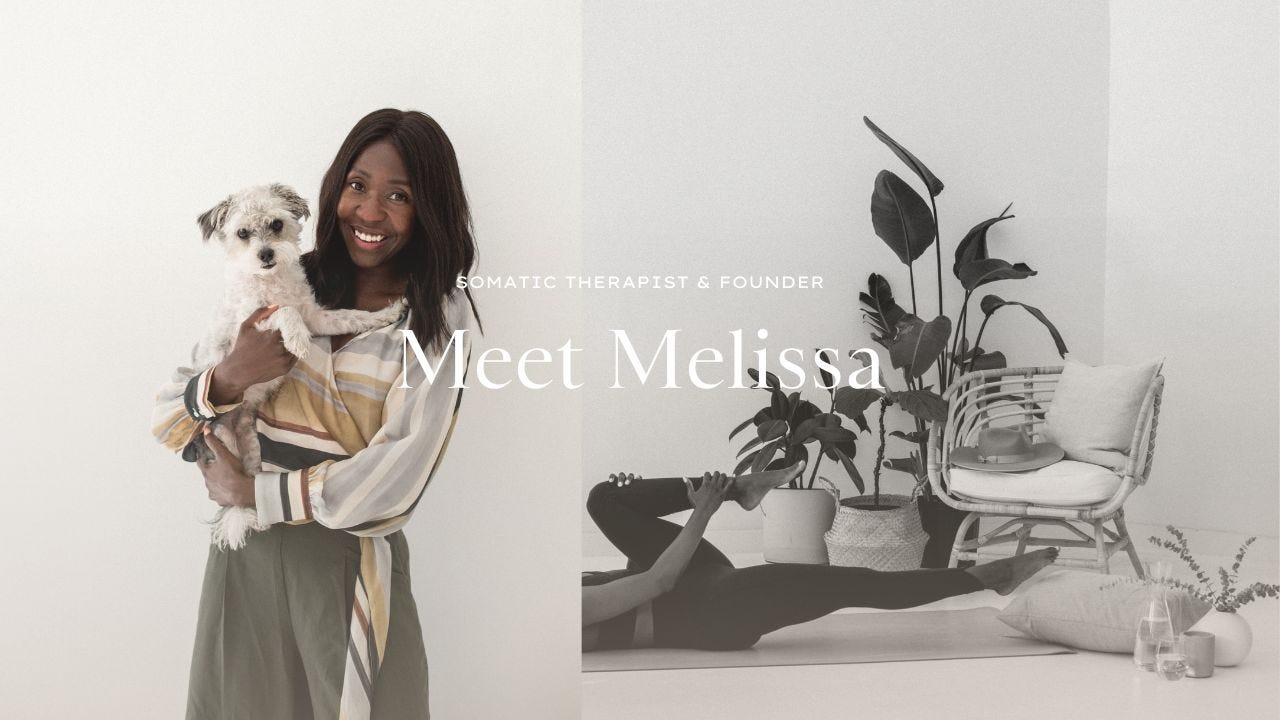🎧 Voice Notes from Me to You:
My close friends and I often send podcast-length voice notes to each other—it's our favorite way to share stories and stay connected. In that same spirit, above is my voice note to you! This is my way of bringing some real connection to our digital relationship. Listen for the inspiration behind this piece, some context about why it matters to me, and the thoughts that didn't make it into the written article.
There's an old wisdom proverb about a fish who leaves the water and returns to tell the others about a whole world beyond their own—only to find they can't comprehend what she's describing.
That was my experience with wellness and self-help. I was the fish who knew nothing but the waters of depression and anxiety. I dove into countless rabbit holes—self-help books, podcasts, endless Google searches. Yet much of what I discovered failed to resonate. Manifesting felt impossible, my ADHD wouldn't allow me to "optimize" my schedule, and the exhaustion of hustling as a young entrepreneur left me too drained for physically demanding workouts.
It was actually my mother who first guided me toward a slower approach. I credit her as my very first self-care guru. From the time I was little, her response to any challenge I faced was often beautifully simple: go for a walk, take a bath, wash your face.
After attending a weekend yoga retreat with my mom, I fell in love with all things yoga and meditation. There was one teacher in particular—I know it sounds cliché, but there is one distinct moment listening to her that changed everything for me.
Not long after, following the end of a ten-year relationship, I signed up for my first yoga teacher training. My studying has continued and expanded for more than a decade since.
Mindfulness became not just a wellness routine but a toolkit for navigating life itself. What started as a personal survival strategy evolved into something deeper: these somatic practices weren't just stress management tools but gateways to healing racialized trauma, nurturing intuition, and transforming daily self-care from mundane afterthought into magical ritual.
My ancestors—and wisdom traditions across cultures and millennia—have been exploring how to elevate our human experience through mind and body. What they knew intuitively, science is now confirming. The same tools in their proverbial toolkit—breathwork, meditation, movement, and intuition—remain powerful resources for us today.
In my work as a somatic practitioner and founder of Kunye—a slow wellness lifestyle company—I interpret timeless wisdom and contextualize it for modern living. I honor both our universal human experience and our distinct cultural journeys.
Through this Substack and Kunye, I'm creating a space to share what I've researched about the body, the nervous system, self-help, and inner peace. I'll also share how I'm integrating these learnings into real life—the struggles, the victories, the everyday moments of practice.
Here's the beautiful truth I've discovered: Right where you are—amidst family obligations, career demands, and cultural expectations—you can cultivate meaningful change starting within your own body. This is about progress, not perfection; integration, not escape.
What Makes Slow Wellness Different:
Authenticity and Cultural Perspective
No toxic positivity or cultural erasure here. I acknowledge that different communities carry different burdens and gifts. Our path to healing honors these differences while celebrating our shared humanity.
A Focus on Feeling
The body is our most tangible vessel for understanding wellness. You'll notice a big emphasis on feeling your feelings—all of them, not just the good ones. Slow Wellness is a somatic-based approach to life rather than a purely cognitive one.
Sustainability and Accessibility
I follow a "whatever works for as long as it works" approach. Do what serves you but give yourself grace to adapt when needed. We are dynamic beings and life is constantly changing. Our work together is about finding sustainable practices that fit the current context of your personal journey.
I don't teach from the mountaintop. I'm on the hike with you.
Leading others doesn't come from a place of perfection but from a deep sense of responsibility that pushes me to keep learning, keep practicing, and keep showing up honestly. Having walked this road largely alone, I understand the weight of isolation that comes with healing. That's why I create spaces for others—not just to teach, but to gather those of us who are figuring it out so we can do it together... stumbling forward and finding strength in shared vulnerability.
Think of me less as a guide and more as the fish who has experienced life outside the sea of suffering. Trust me when I say, there is a whole other world to experience—one that is slower and feels more safe and sustainable.
Come and go as you please. Stay open and curious. Take what serves you and feel free to leave the rest.
I'm so glad you're here.
— Meli





